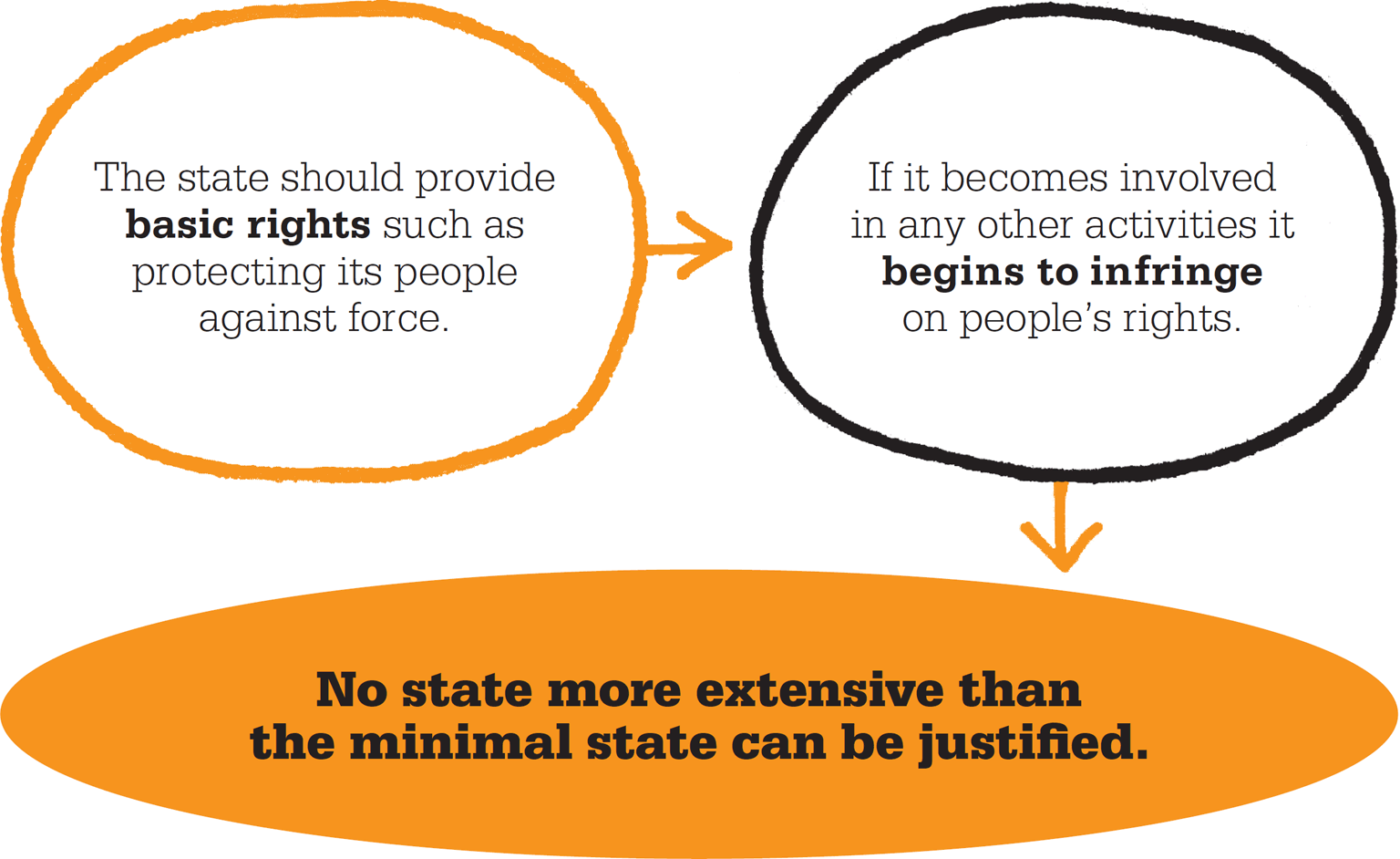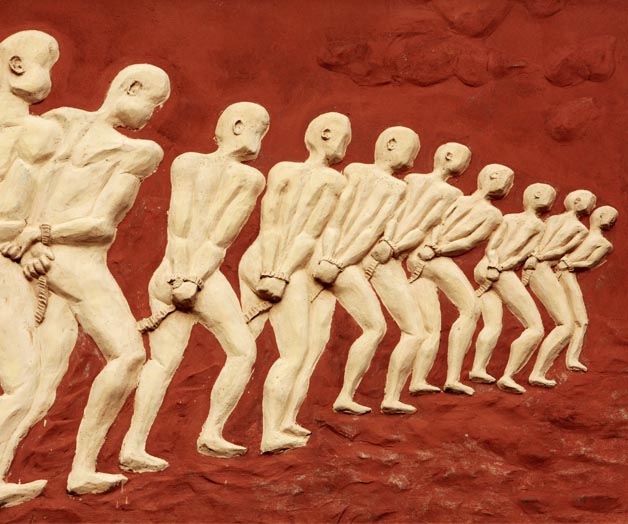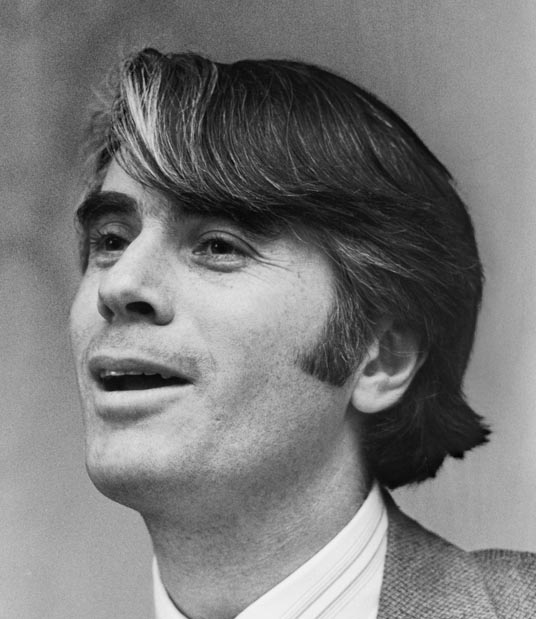
IN CONTEXT
Liberalism
Libertarian rights
1689 John Locke writes two treatises on government outlining a social contract.
1944 In The Road to Serfdom, Friedrich Hayek condemns government control through central planning.
1971 John Rawls’s book A Theory of Justice argues for the state to correct inequalities in society.
1983 Michael Walzer looks at how society distributes “social goods” such as education and work in Spheres of Justice.
1995 Canadian theorist Gerald Cohen publishes a Marxist critique of Rawls and Nozick titled Self-ownership, Freedom, and Equality.
The position of individual rights in an era of strong states and extensive public institutions has proved a fertile ground for political theory. Prominent in the debate has been philosopher Robert Nozick, whose work was in part a response to the ideas of John Locke and John Rawls.
Locke, writing his Second Treatise on Government in 1689, provided the foundations of the theory of the modern state by suggesting that people held individual rights, but that some form of state was needed to enforce them. From this came the notion of the social contract, outlined by Jean-Jacques Rousseau, whereby individuals give up some of their freedom in order to have protection from the state.
"Individuals have rights and there are things no person or group may do to them."
Robert Nozick
Rawls’s influential 1971 book A Theory of Justice built on this idea by proposing a variant of the social contract, which he believed reconciled it with the ideas of liberty and equality that were explored in Locke’s work. Rawls suggests a framework that allows individuals to collectively agree on an idea of justice that is based on fairness and equality rather than personal self-interest, laying a foundation for social democracy. Nozick drew on Locke and Kant to argue that there were dangers in the forms of cooperation that lay in Rawls’s argument. He revived the idea of libertarianism, which holds that the reach of the state should be as limited as possible.
The result of Nozick’s argument was the notion that any form of state other than the minimal was incompatible with individual rights, and therefore unjustifiable. Where the state became involved in any activity other than the most basic—“protection against force, theft, fraud, enforcement of contracts, and so on”—then it would infringe the rights that Rawls sought to preserve.

Anarchy, State, and Utopia
Nozick’s most vivid description of this view was in his book Anarchy, State, and Utopia, which argued for a minimal state and provided a series of direct responses to the claims made by Rawls. The book was developed from a course taught by Nozick at Harvard with the political theorist Michael Walzer, which took the form of a debate between the two. Later, Walzer became one of the most significant critics of the arguments made in the book.
Perhaps the most famous conclusion reached in Anarchy, State, and Utopia was the idea that taxation, as employed by modern states to redistribute income and fund public agencies, was morally indefensible. In Nozick’s view, it amounts to a form of forced labor, where a proportion of a person’s work compulsorily benefits others. Indeed, Nozick went as far as to imagine this as a form of slavery, where every member of society had some claim of ownership to an individual’s labor.
Anarchy, State, and Utopia proved hugely influential and helped define the modern boundaries of the debate between libertarian thought and liberalism. Often read alongside A Theory of Justice, it ranks as one of the most important works of political philosophy in the modern era.

Taxation is described as a form of slavery by Nozick, in the sense that members of society can demand a portion of an individual’s labor, making it into a forced employment.
ROBERT NOZICK

Born in New York in 1938, Robert Nozick was the son of a Jewish entrepreneur. He pursued an academic career, training at Columbia, Oxford, and Princeton universities.
Initially drawn to the ideas of the Left, his reading of Friedrich Hayek, Ayn Rand, and other free-market thinkers during his graduate studies moved his standpoint toward libertarianism. His career was spent mostly at Harvard, where he established himself as one of the leading figures in libertarian thought. Famously, he is said to have only ever taught the same course twice.
Nozick’s most significant work of political theory was his first, Anarchy, State, and Utopia, though he wrote on a variety of subjects throughout his career, and did not restrict himself to political philosophy. In later life he rejected extreme libertarianism, and suggested limits on inheritances.
Key works
1974 Anarchy, State, and Utopia
1981 Philosophical Explanations
1993 The Nature of Rationality
See also: John Locke • Immanuel Kant • Henry David Thoreau • John Rawls • Michael Walzer
